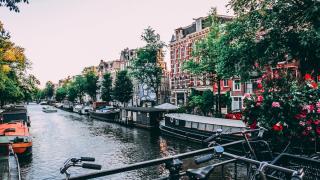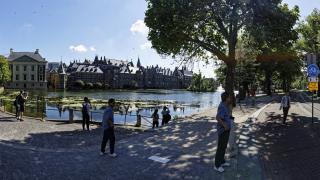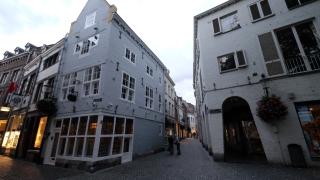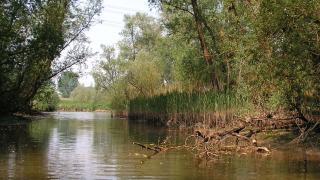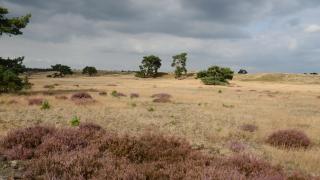Understanding Dutch Communities
Local communities in the Netherlands are shaped by history, geography, and language. Each province, such as Friesland or Limburg, has unique traditions. Dutch villages (dorpen) often have centuries-old churches and town halls. Cities like Utrecht and Groningen have distinct neighborhoods, each with its own identity. Local markets, called "markten," operate weekly in most towns. Residents often join neighborhood groups, or "buurtverenigingen," to organize events. Community pride is visible during King's Day, when streets fill with orange decorations. In Friesland, Frisian language and customs are protected by law. In Amsterdam, the Jordaan district is known for its working-class roots. Local bakeries sell regional specialties, such as Limburgse vlaai or Brabantse worstenbroodjes. Prices for local events range from free to €10. Most community festivals happen between April and September. Engaging with locals can mean joining a cycling tour or attending a village fair. Dutch people value directness and openness in conversation. Visitors who respect local customs are welcomed. Experiencing these communities gives insight into Dutch daily life beyond tourist sites.
Village Life vs. City Vibes
Village communities in the Netherlands are small and tightly knit. In Friesland, dorpshuizen (village halls) host weekly coffee mornings. Neighbors often know each other by name. Social visits are common, usually unannounced. In rural areas, people greet strangers with a nod or "hoi." Local events like dorpsfeest (village festivals) happen annually, with traditional games and local food. In Friesland, Skûtsjesilen (sailing races) draw crowds each July. City life is more anonymous. In Amsterdam, most residents live in apartments. People value privacy and rarely greet strangers. Neighborhoods like De Pijp or Jordaan have local markets, but interaction is brief. Community events include King's Day vrijmarkt (street market) and neighborhood borrels (drinks), usually held monthly. In cities, gatherings are scheduled and invitations are expected. Pace of life differs: In villages, shops close by 18:00 and Sundays are quiet. In cities, supermarkets like Albert Heijn stay open until 22:00. Customs vary: Shoes off inside homes is common in villages, less so in cities. Distances matter: Cycling from one Friesland village to another takes 15-20 minutes. In Amsterdam, cycling across the city takes 30-40 minutes.
Joining In: Local Events & Traditions
King’s Day (Koningsdag) is the largest national celebration. Every April 27, locals wear orange and join street parties. Amsterdam’s canals fill with boats. Village squares host flea markets (vrijmarkt). Entry is free. Arrive early for the best finds.
Sinterklaas arrives by boat in mid-November. Parades happen in most towns, especially in Gouda and Dokkum. Children sing Dutch songs. Local bakeries sell pepernoten (spiced cookies).
Weekly markets (weekmarkt) take place in nearly every city and village. Leiden’s Saturday market runs 8:00–17:00. Cheese markets in Alkmaar and Gouda operate April–September. Entry is free.
Village fairs (dorpsfeest) are common in summer. Look for posters at supermarkets or on community bulletin boards (prikbord). Events include traditional games, live music, and local food.
How to find events:
- Check local municipality websites (gemeente) or social media groups.
- Ask at tourist offices (VVV).
- Notice boards at libraries and bakeries often list upcoming events.
Tips for participation:
- Greet people with “hallo” or “goedemorgen.”
- Respect local customs, such as queuing and not being loud.
- Bring cash for small purchases.
Hands-on experiences:
- Join tulip bulb planting in Lisse (October–December).
- Volunteer at open gardens (open tuinen) in Utrecht.
- Attend cheese-making workshops in Edam.
Avoid taking photos of children at parades without permission.
Dutch local communities value directness. People say what they mean, even in small villages like Giethoorn or Marken. This is not considered rude. It is seen as honest and efficient. Punctuality is important. Arriving five minutes late for a buurtfeest (neighborhood party) or coffee at a buurthuis is frowned upon. Appointments are common, even for casual visits. Spontaneous drop-ins are rare outside close friends or family.
Egalitarianism shapes interactions. Titles are rarely used. Everyone is addressed by their first name, including teachers and local officials. Decisions in verenigingen (local clubs) are made by consensus. Community meetings may last over an hour as everyone’s opinion is heard. Privacy is respected. Neighbors may not ask personal questions unless invited.
Do greet with a handshake or a simple "hoi" or "goedemorgen". Three kisses on the cheek are common among close friends, not strangers. Avoid loud voices in public spaces. Do not ask about income or political views. If invited to a Dutch home, bring flowers or vlaai (fruit tart). Remove shoes if you see others do so. Declining a second coffee is polite; say "nee, dank je".
Insider Tips for Meaningful Connections
Start conversations at local cafés like De Koffieschenkerij in Amsterdam. Dutch people often meet friends in cafés after work (from 17:00).
Visit neighborhood markets. Albert Cuypmarkt in Amsterdam or Dappermarkt are popular with locals. Markets run Monday to Saturday, 9:00–17:00.
Join community activities. Many buurthuizen (community centers) in Utrecht or Rotterdam offer open evenings for €2–€5.
Attend park gatherings. Vondelpark in Amsterdam and Noorderplantsoen in Groningen host free summer concerts and picnics.
Take Dutch language classes. Volksuniversiteit offers beginner courses for €250–€350 per semester.
Join expat meetups. Meetup.com lists Dutch-English language exchanges and hobby groups in The Hague and Eindhoven.
Avoid interrupting groups or being overly formal. Dutch locals prefer direct, informal greetings like "Hoi" or "Hallo."
Do not expect small talk. The Dutch value honest, efficient conversation.
Use local guides. Gidsnetwerk Nederland connects travelers with volunteer guides for free city walks.
